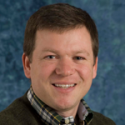Seven UW-Madison faculty honored as AAAS fellows
Seven members of the University of Wisconsin–Madison faculty have been elected fellows of the American Association for the Advancement of Science (AAAS), it was announced Dec. 18.
Selection as a AAAS fellow is a high honor conferred by peers in recognition of distinguished efforts to advance science and its applications. AAAS is the world’s largest general scientific society. The tradition of naming AAAS fellows in honor of their achievements dates to 1874.
Included in the 2008 class of AAAS fellows are:
- Richard R. Burgess, a professor of oncology, recognized for contributions to the biochemistry of gene regulation and promoting technology transfer and the commercialization of research as the founding director of the UW–Madison Biotechnology Center.
- Franco Cerrina, a professor of electrical and computer engineering, cited for work to develop technology in support of on-demand DNA microarray chips, a technology that permits high-definition gene expression analysis.
- Jo Handelsman, chair and professor of bacteriology and Howard Hughes Medical Institute professor, for efforts toward understanding bacterial quorum sensing and metagenomics, and also for her contributions to education of women in science.
- Bruce S. Klein, a professor of pediatrics and medical microbiology, for distinguished contributions to the field of medical mycology, particularly for uncovering the molecular mechanisms of the life cycle of medically important fungi.
- Clark R. Landis, a professor of chemistry, for contributions to mechanistic organometallic chemistry, especially for insightful computational models and the development of sophisticated new experimental approaches.
- Alexander Nagel, a professor of mathematics, for fundamental work on singular Radon transforms, oscillatory and singular integrals, the Carnot metric with applications to subelliptic estimates and several complex variables.
- Waclaw Szybalski, professor emeritus of oncology, for multiple and diverse contributions to the field of molecular genetics and chemical mutagenesis and in particular for his formation of hypoxanthine-aminopterine-thymidine medium, a selection medium for mammalian cell culture.
Tags: faculty awards


